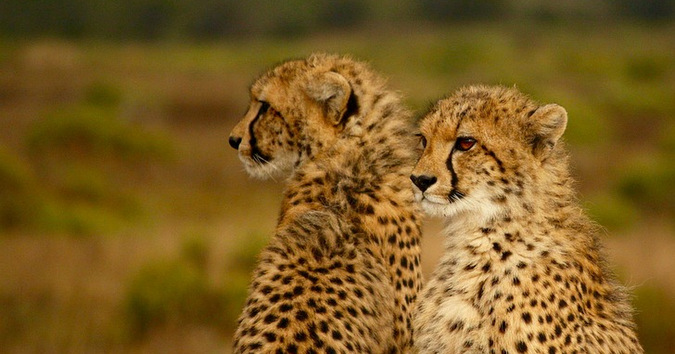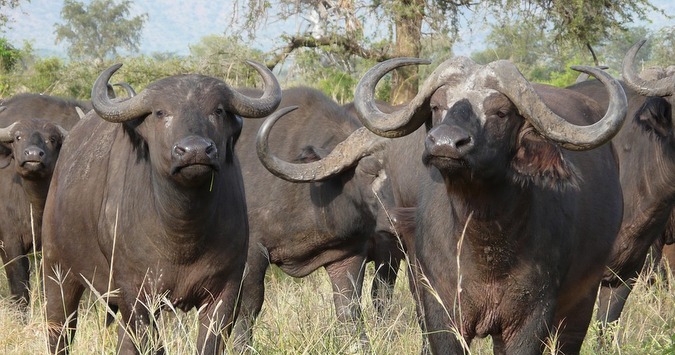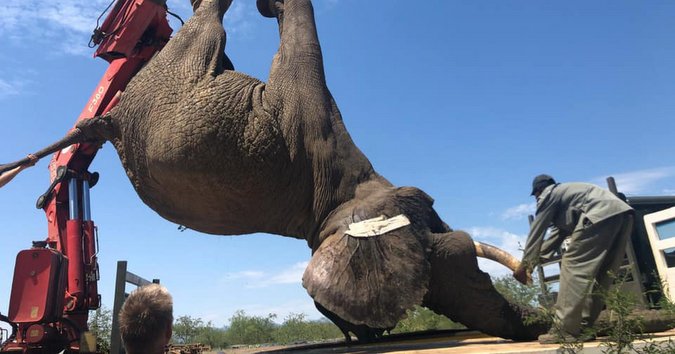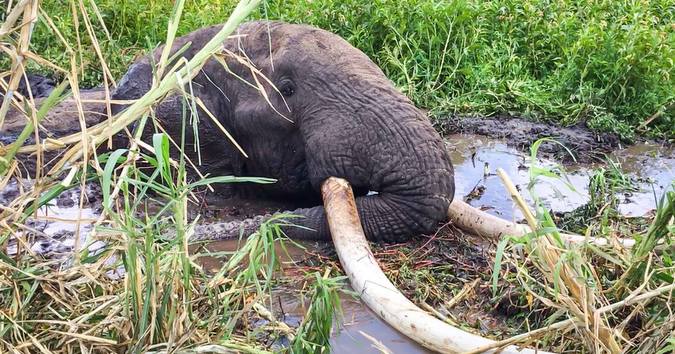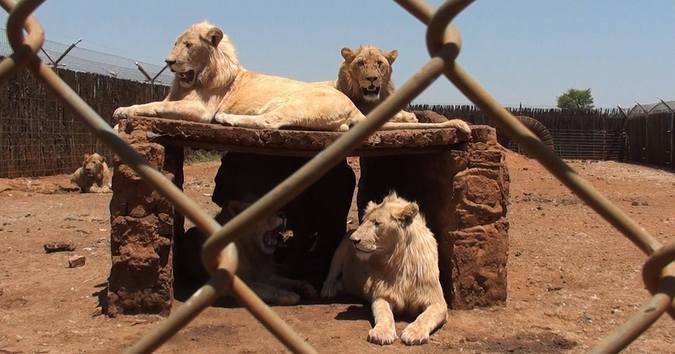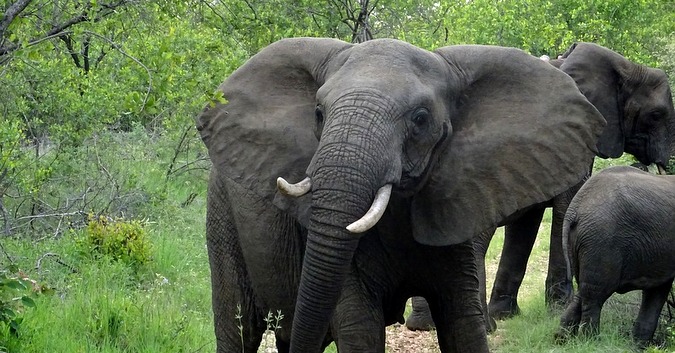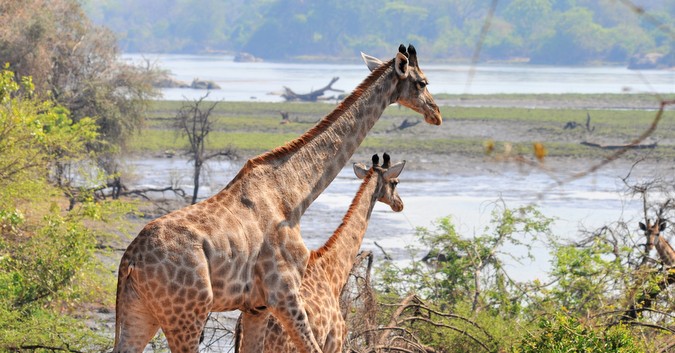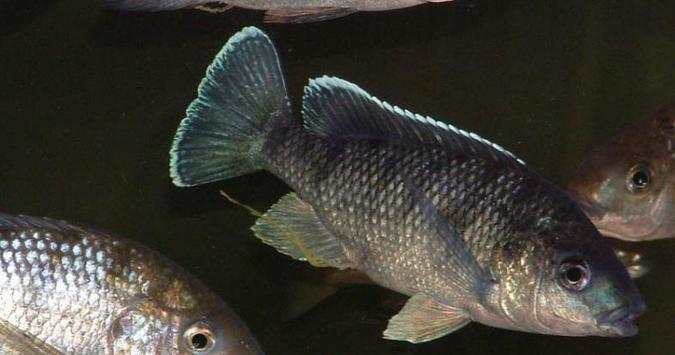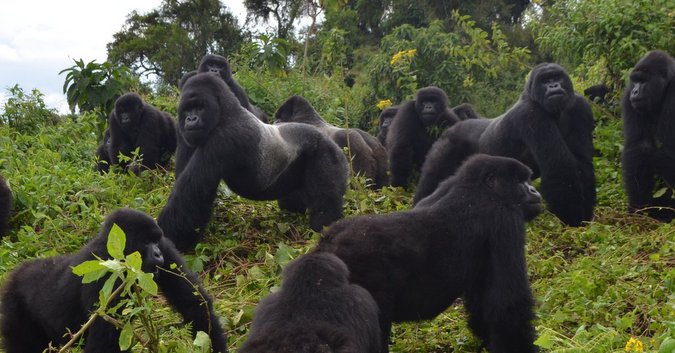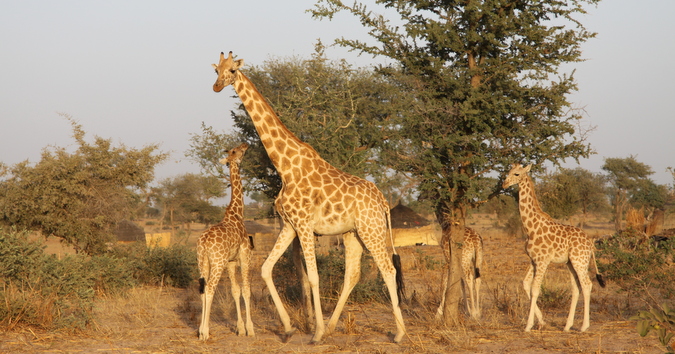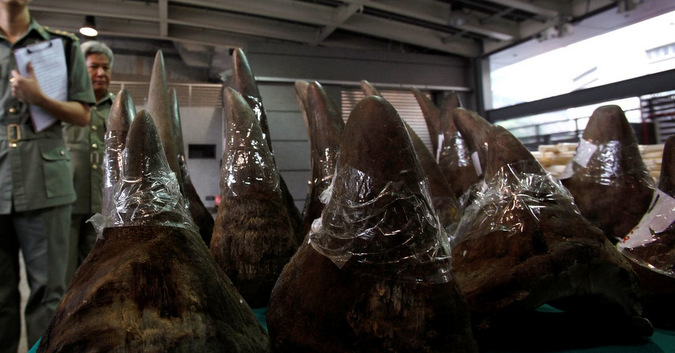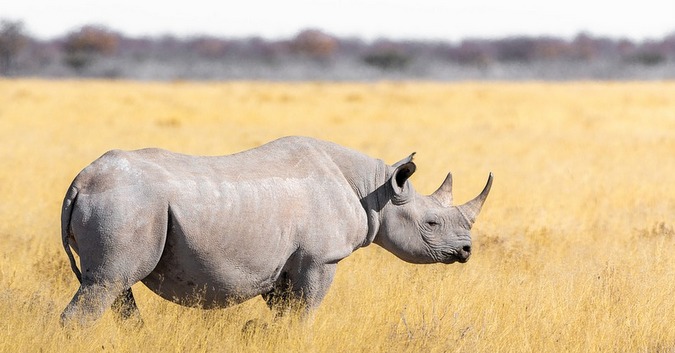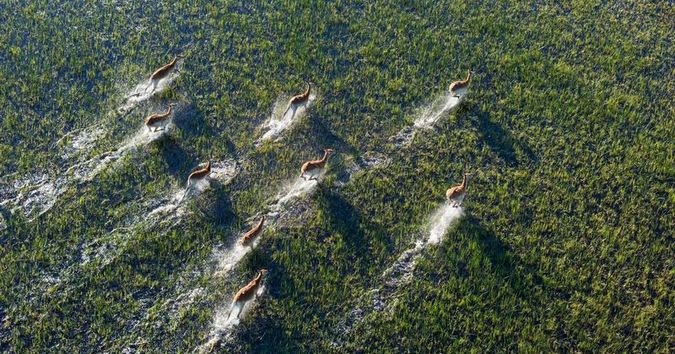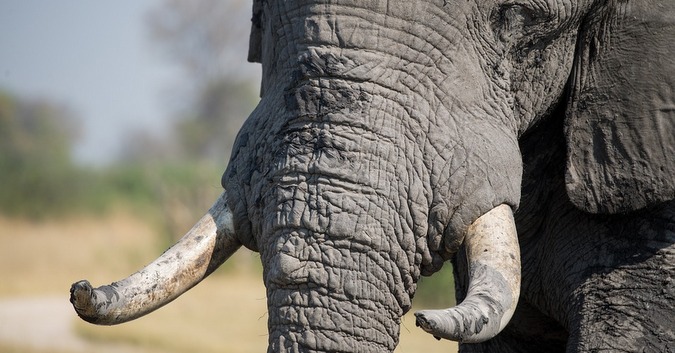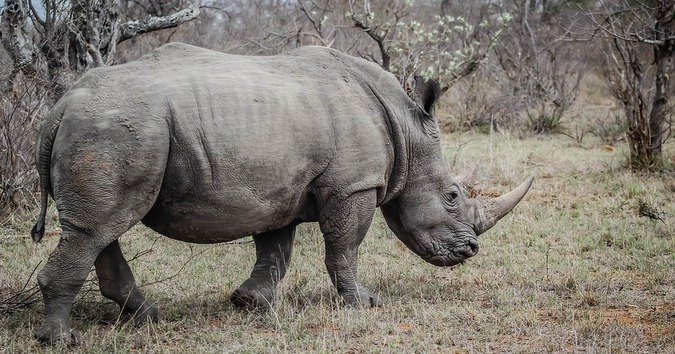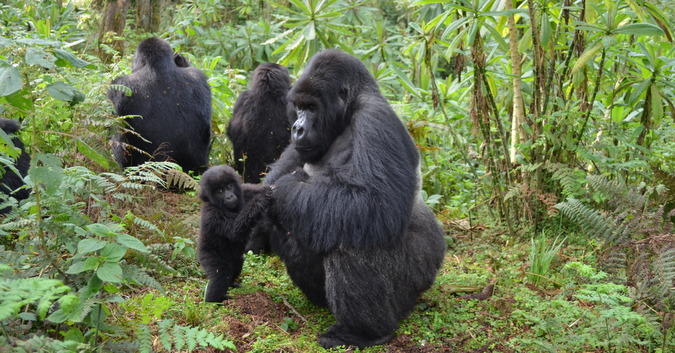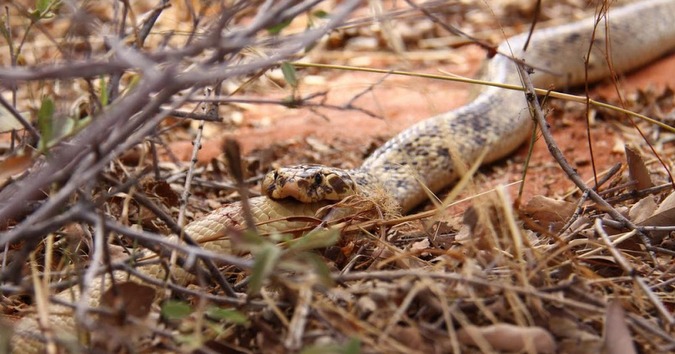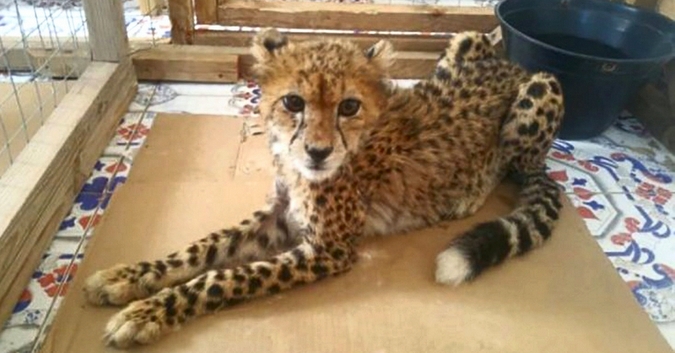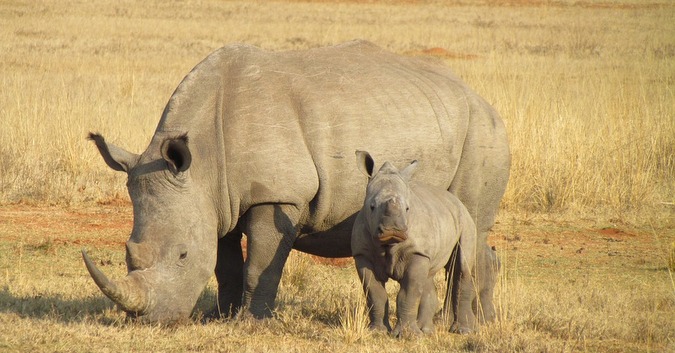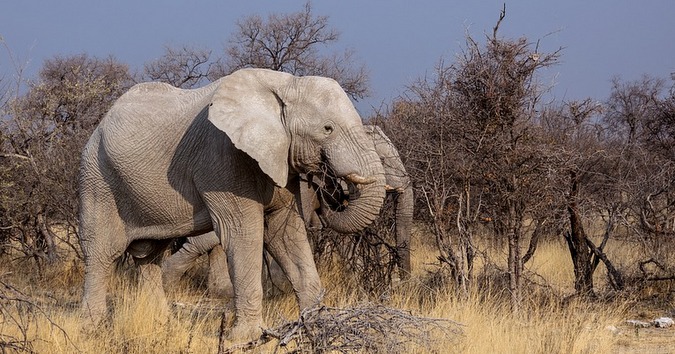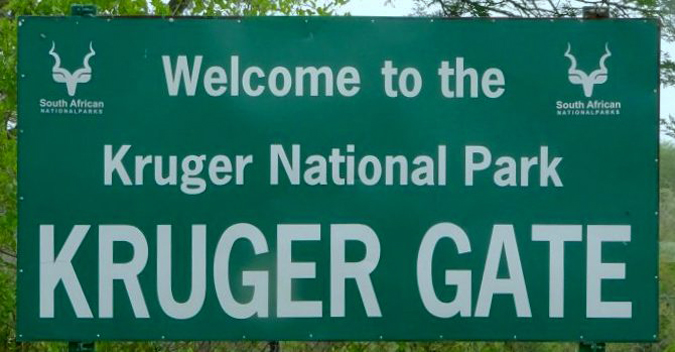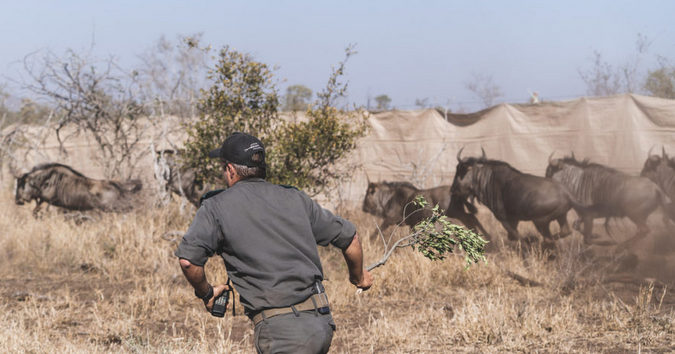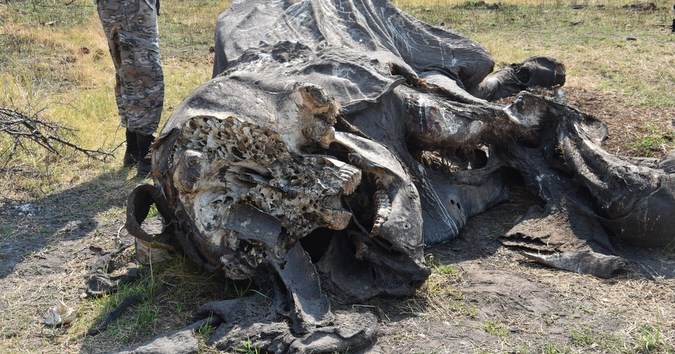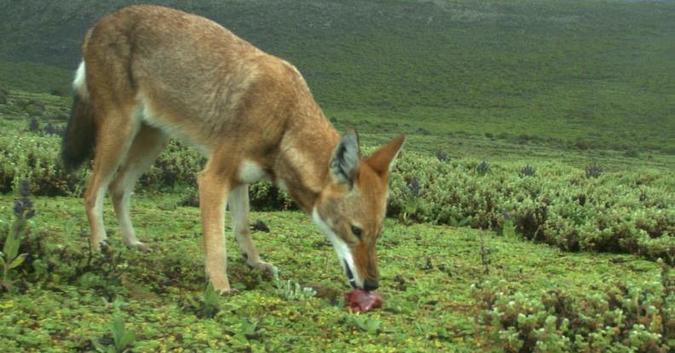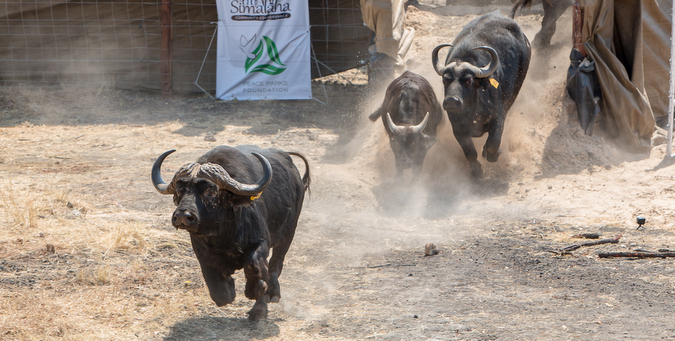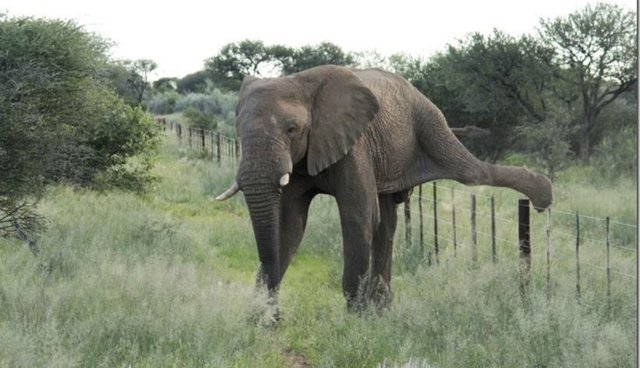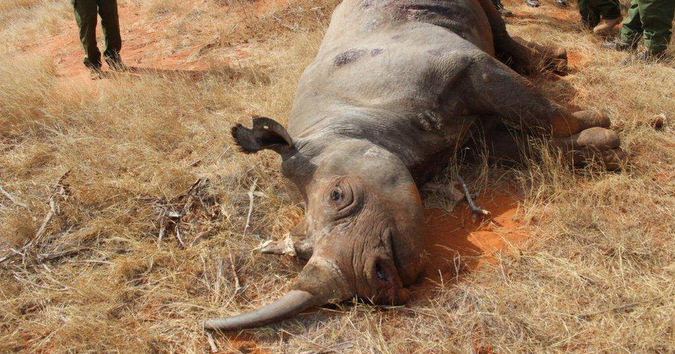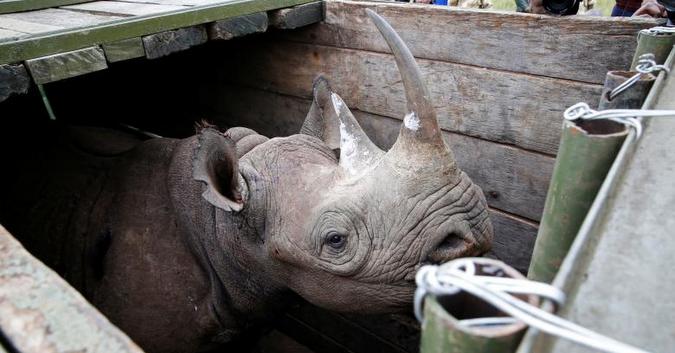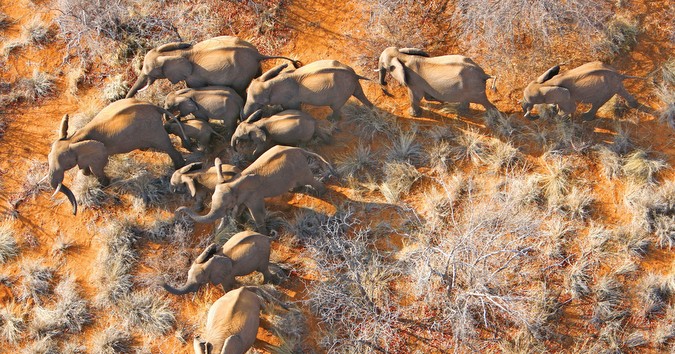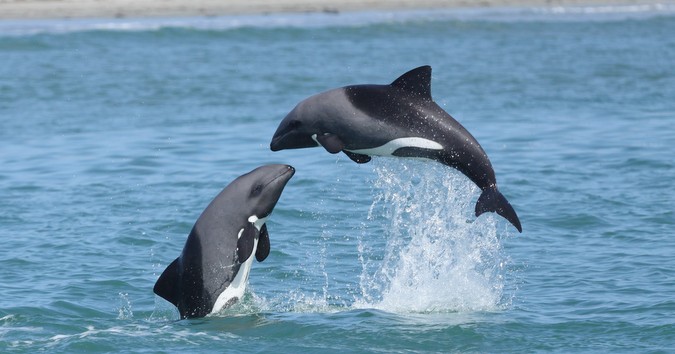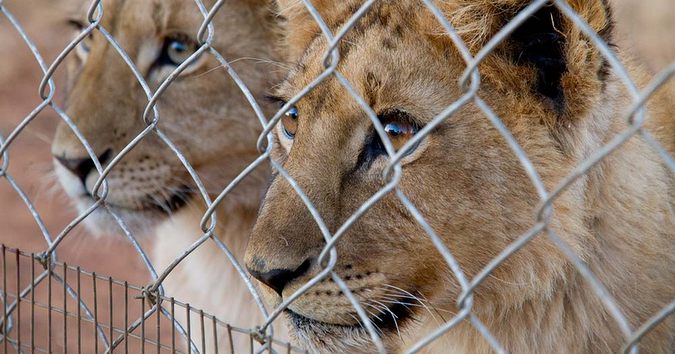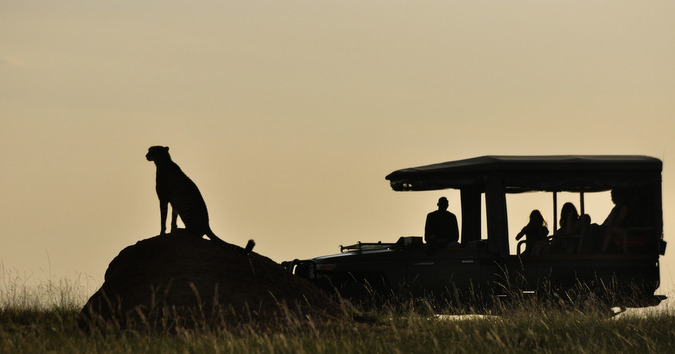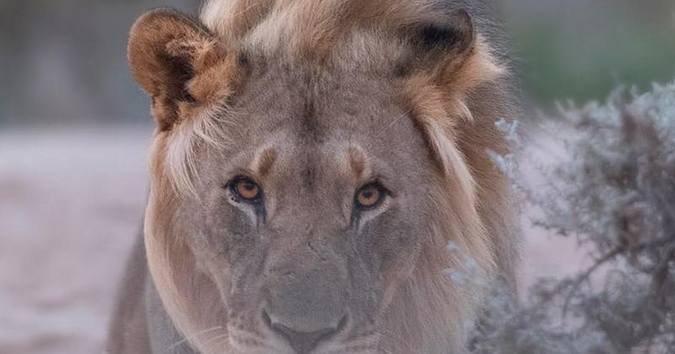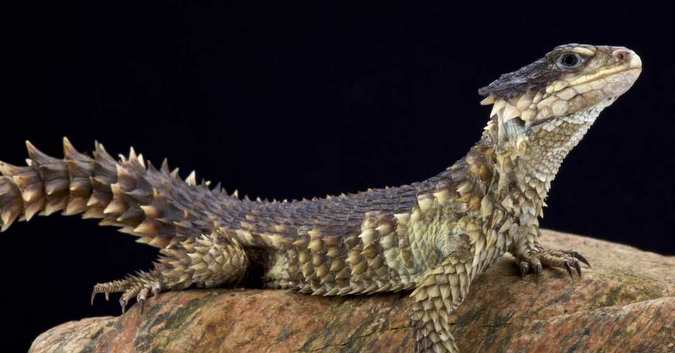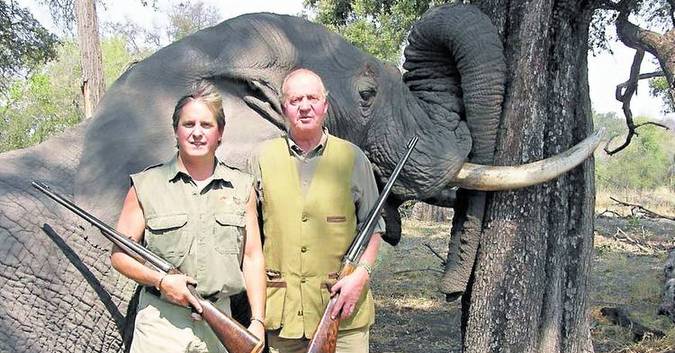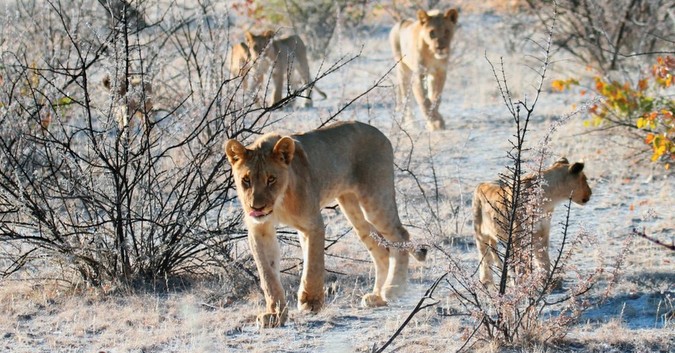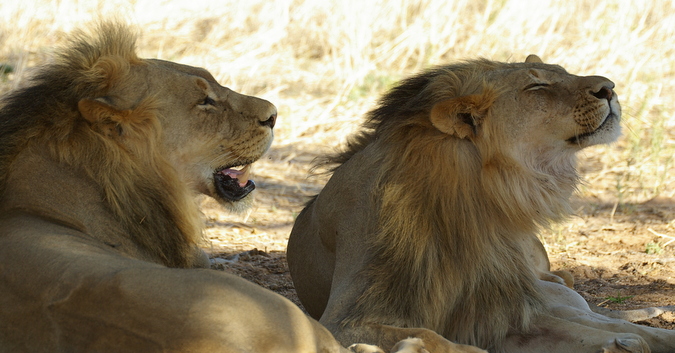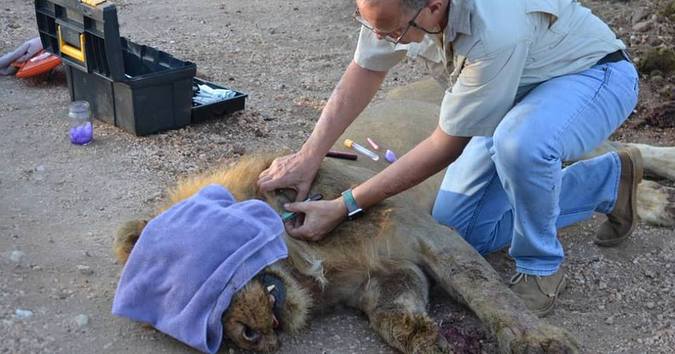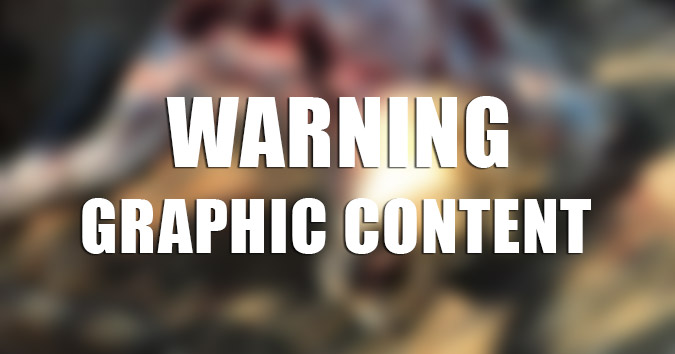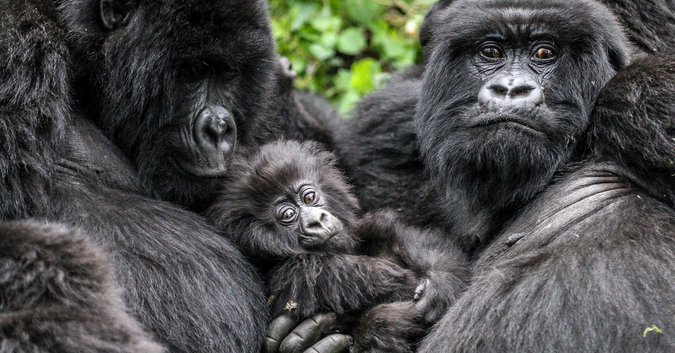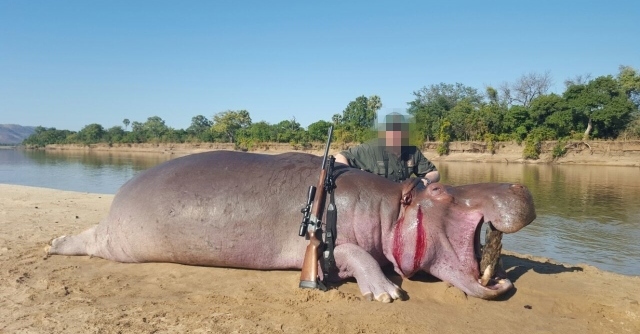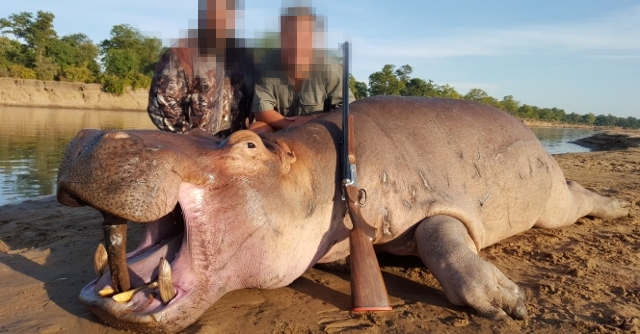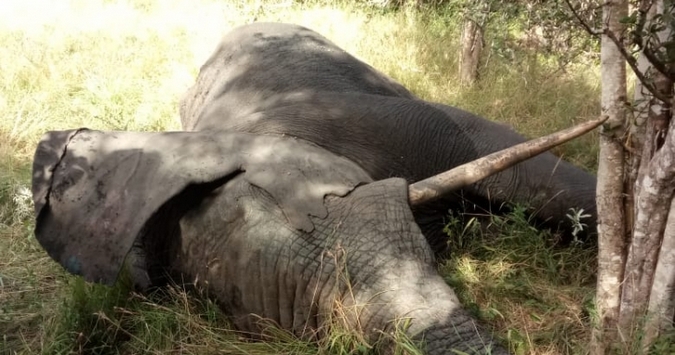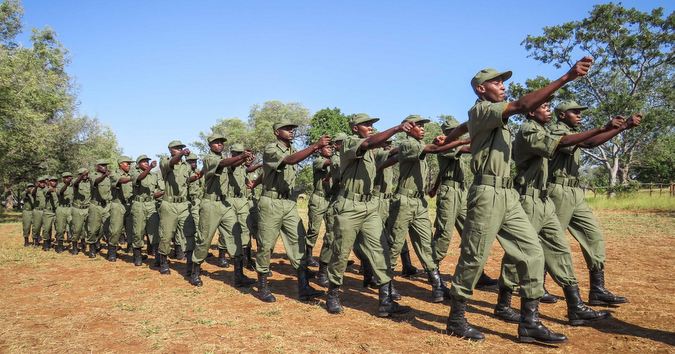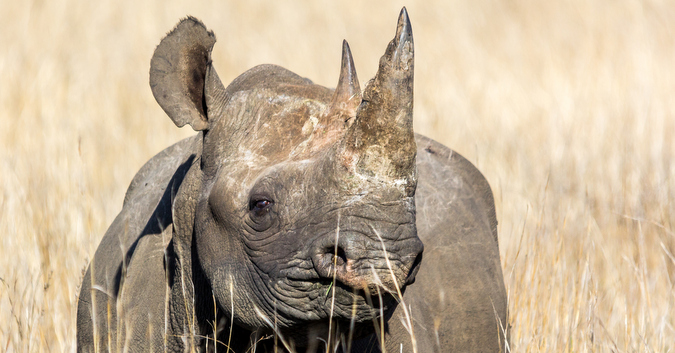The Cheetah Conservation Fund (CCF) has announced a new international partnership between European and African institutions to enhance Somaliland’s ability to treat and care for confiscated wildlife.
Author Archives: News Desk
A great year for wildlife in Maputo Special Reserve
In a conservation success story, more than 4,200 animals have been translocated to Maputo Special Reserve since 2013 through a multi-year rewilding project led by Peace Parks Foundation.
4 Elephants die as mercy mission goes wrong during heatwave
Tragedy as four elephant bulls that were causing havoc in the Gravelotte area in Limpopo die during relocation attempt.
Famous super tusker Tim rescued from certain death
Tim, an icon of Amboseli and one of Africa’s largest and most magnificent elephants, has been rescued from certain death.
Lion bone quota now reduced to 800 skeletons from 1,500
The quota for the lion bone trade has been reduced from 1,500 to 800 lion skeletons, according to a media statement from the DEA.
Balule responds regarding traumatising elephant hunt incident
Balule Nature Reserve responds to the incident regarding a traumatising elephant hunt.
Video: Malawi gains new giraffe population in Majete Wildlife Reserve
Thirteen South African giraffe have been translocated over 2,500 km and safely released into Malawi’s Majete Wildlife Reserve, establishing its first population.
Lake Malawi fish species at risk of extinction
The latest update of the IUCN Red List of Threatened Species has revealed that overfishing is causing fish species in parts of the developing world to decline, with 9% of the 458 fish species assessed in Lake Malawi at high risk of extinction.
Rare conservation win: Mountain gorilla population ticks up
The IUCN has updated the status of mountain gorillas, officially changing them from ‘Critically Endangered’ – the highest level of threat – to ‘Endangered’.
Giraffes are in trouble, says IUCN status update
The International Union for Conservation of Nature (IUCN) Red List of Threatened Species is once again drawing attention to the plight of giraffes.
Captive lion breeding and bone trade: MPs call for an end to the practice
The Environmental Affairs Committee has called for a policy and legislative review on captive lion breeding for hunting and lion bone trade.
Good news as China now reverses decision to lift ban on trade in tiger and rhino parts
China has postponed the lifting of a ban on the trade of rhino horn and tiger parts for medicine and other uses, the government said on Monday, after a storm of protest from conservation groups over a plan to water down the decades-old prohibition.
To end wildlife trafficking, engage with local communities – study
The international donor community and governments have invested heavily in fighting illegal wildlife trade, but so far, they haven’t succeeded in ending rhino poaching. New research from UCT shows that for these initiatives to succeed, local communities – many of which live in or near protected areas – need to be involved.
Scientists warn that the world’s wilderness areas are disappearing
Scientists reveal that just 23% of the world’s landmass can now be considered wilderness, with the rest lost to the direct effects of human activities.
Botswana’s president addresses the issue of game farms and hunting in Botswana
Botswana’s president addresses the issue of game farms and hunting in Botswana.
China lifts ban and legalises tiger bone and rhino horn for medical purposes
China has revised a law on the ban of rhino horn and tiger bone products that would now allow domestic trade and use of the products for scientific, medical and cultural purposes.
Video: Gorilla males who babysit have greater reproduction success
Research reveals that male gorillas have greater reproductive success if they spend more time taking care of kids.
Cannibal cobras
While Cape cobras are known to eat other snake species – up to a third of their diet – recorded instances of Cape cobras eating individuals of the same species has been extremely rare… until now, when researchers investigated and discovered how common and widespread cannibalism in cobras really is.
Social media’s role in advertising illegal wildlife trade, including cheetah trafficking
Cheetah Conservation Fund data analysis confirms social media role in advertising illegal wildlife trade, including trafficking of cheetahs for illegal pet trade.
DEA announces 2018 rhino and elephant poaching stats to date
The South African Department of Environmental Affairs announces 2018 rhino and elephant poaching stats to date.
Elephant hunting: Botswana initiates month-long consultation process
Botswana initiated on Wednesday a month of public hearings to decide whether to lift the 2014 hunting ban, including elephant hunting.
Skye the lion hunting furore: Parliament wants Kruger NP agreement with private reserves revised
Environmental Affairs committee believes agreement between Kruger National Park and private reserves should be revised.
Video: 500 animals journey from Kruger to Zinave
The past two months saw the translocation of zebra, blue wildebeest and impala from Kruger National Park in South Africa to Zinave National Park in Mozambique. The overall goal is to reintroduce 7,500 game animals in Zinave over the next five years and to date over 1,300 animals have been rewilded to the park.
Elephant poaching: Botswana gov provides context, questions irresponsible reporting
The government of Botswana responds to the recent reports alleging that about 90 elephants were killed recently.
Oral vaccination protects Ethiopian wolves – Africa’s most endangered carnivore
Over the past month, a team from the Ethiopian Wolf Conservation Programme (EWCP) implemented the first oral vaccination campaign to pre-empt outbreaks of rabies among Ethiopian wolves, the world’s most endangered canid, in their stronghold in the Bale Mountains of southern Ethiopia.
Video: 90 African buffalo welcomed into community conservancy in Zambia
Peace Parks Foundation has presented 90 African buffalo to the communities of the Simalaha Community Conservancy, with an additional 110 buffalo still to be brought in over the next month.
Elephants migrate despite boundaries and borders
A new study from the Conservation Ecology Research Unit (CERU) at the University of Pretoria (UP) set out to unravel migration in the world’s largest terrestrial mammal: the savanna elephant.
Update on rhino translocation fiasco: WWF-Kenya admits mistakes were made
WWF-Kenya has admitted that grave mistakes were made in the translocation operation in Kenya which saw 10 out of 11 critically endangered black rhinos die.
Update on rhino translocation fiasco: Tenth black rhino dies, remaining survivor attacked by lions
A tenth endangered black rhino has reportedly died after a botched translocation, according to Kenya’s tourism minister.
200 Elephants to be moved from South Africa to Mozambique
De Beers Group, in partnership with Peace Parks Foundation, has begun to transport 200 elephants across 1,500km from the Venetia Limpopo Nature Reserve in South Africa to Mozambique.
Costly communication: Heaviside’s dolphins risk being heard by eavesdropping killer whales
Research has found that the risky vocal behaviour of Heaviside’s dolphins put them at risk from killer whale attacks.
South Africa’s lion bone export quota set at 1,500 skeletons
The DEA has announced that the new lion bone export quota will allow 1,500 lion skeletons from captive-bred lions to be exported annually from South Africa.
8 Endangered black rhinos die after translocation in Kenya
Eight out of 14 critically endangered black rhinos have died after being moved to a reserve in southern Kenya, wildlife officials have revealed.
Elephants with a purpose
Why did 53 elephants travel more than 1,250 km across three different countries this month? Here’s why.
Cheetah cub survival impacted by high-tourism areas
A study has found that high levels of tourism can have a negative impact on the rearing of cheetah cubs to independence.
Death of desert-adapted lion: Namibian minister explains policy and requests understanding
The Namibian Minister of Environment and Tourism has responded to the killing of the male desert-adapted lion, Gretsky (XPL 99).
Investigating South Africa’s wildlife cryptotrade
A casual search of some of South Africa’s biggest online marketplaces shows just how easily endangered wildlife species are reduced to their parts – and how simple it is to sell them online while retaining anonymity.
Botswana MP proposes lifting elephant hunting ban
Botswana’s parliament has adopted a motion requesting the government to consider lifting the ban on the hunting of elephants in areas that are not designated as game reserves and national parks.
Rhino breeder John Hume says he is on verge of bankruptcy, appeals for cash
The world’s largest private rhino breeder, John Hume, is on the verge of bankruptcy, leaving questions open as to what will happen to his 1,626 southern white rhinos.
Lion killings: Namibian NGOs respond to questions from abroad about lion management
In light of the recent backlash against Namibia for the death of a desert-adapted lion, Dr Chris Brown, CEO of the Namibia Chamber of Environment, responds to a foreign national’s questions regarding Namibia’s management of lions in the wild.
Guarding Limpopo National Park’s carnivores
A new carnivore protection ranger force, the Limpopo Lion Protection Team, has been trained and deployed – specifically assigned to support the Greater Limpopo Carnivore Programme and tasked with securing known lion ranges from targeted lion poaching.
Lions tested for tuberculosis in Greater Kruger
A veterinarian and the ProVet Wildlife team recently darted a pride of five lions in the northern part of Greater Kruger to test for TB.
Gretzky, a desert-adapted lion, shot by Namibian authorities after killing livestock
Gretzky, the iconic Huab River male desert-adapted lion, who sired and established the Ugab Pride has been shot and killed by the Ministry of Environment and Tourism (MET) at De Rust Farm.
Mountain gorilla numbers surpass 1,000
The population of mountain gorillas, one of the world’s most endangered species,, has increased by a quarter to over 1,000 individuals since 2010, wildlife authorities said.
Zambia hippo cull via trophy hunting not as high as 2,000, says minister
The Zambian government on Tuesday denied reports that it has authorised the culling of 2,000 hippos in the Luangwa Valley.
Zambia reinstates plan to cull 2,000 hippos
Zambian authorities have overturned their 2016 decision to suspend the culling of up to 2,000 hippos in Luangwa Valley.
Elephant cow with calf saved from snare
An elephant cow, with a 2-week-old baby in tow, needed all the help she could get after sustaining a serious injury from a poaching snare.
Ranger forces strengthened in Mozambique
On 16 May 2018, 39 recruits, of which three are women, celebrated their graduation as rangers during a passing out parade held in the Limpopo National Park, Mozambique. This follows the successful completion of a gruelling eight-week ranger training course presented by the Southern African Wildlife College, that prepared the new recruits for their stand against wildlife crime in the various conservation areas to which they will soon be deployed.
Tanzania invites bids for logging in Selous to pave way for huge hydropower plant
The Tanzania Forest Services (TFS) has invited tenders for large-scale logging in the Selous Game Reserve, a world-renowned wildlife area, where it plans to construct a large hydropower plant.
Kenya to fast-track laws to make wildlife killing capital offence
Kenya will fast-track laws to make wildlife poaching a capital offence as part of the country’s bid to conserve flora and fauna.

